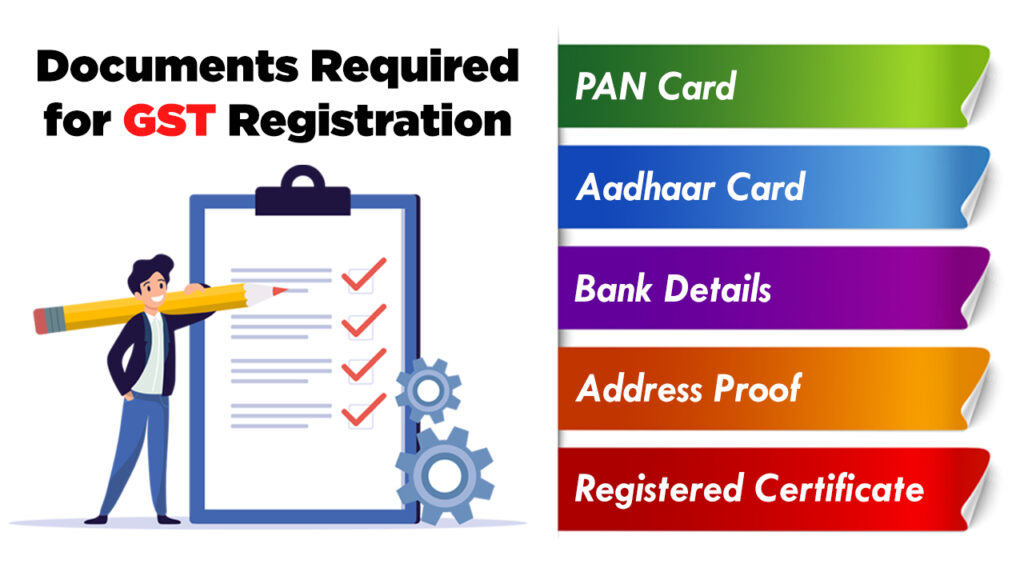Locating Reliable and Efficient Best GST Registration Services in Singapore
Locating Reliable and Efficient Best GST Registration Services in Singapore
Blog Article
Throughout: The Ultimate Roadmap to GST Registration for Businesses Looking For Financial Security
Browsing the intricacies of Item and Provider Tax Obligation (GST) registration is a critical step for companies aiming for monetary security. Damaging down the roadmap into workable actions can streamline the enrollment journey for businesses looking to enhance their economic standing.
Understanding GST Basics
Looking into the basic concepts of Item and Provider Tax Obligation (GST) is essential for gaining a comprehensive understanding of its ramifications on organizations and the economic climate. GST is a value-added tax levied on most products and solutions for residential usage. It has actually replaced multiple indirect taxes that existed in the pre-GST era, enhancing the tax framework and improving ease of doing business in India. Under the GST system, both solutions and products are exhausted at a specific price, which is identified based on their category. Businesses are called for to register for GST if their yearly turnover goes beyond the threshold limitation established by the federal government. Input Tax Obligation Credit Rating (ITC) is a considerable function of GST, allowing companies to declare credit scores for tax obligations paid on inputs, minimizing the overall tax obligation burden. Recognizing the fundamentals of GST is critical for companies to follow tax laws, manage their funds efficiently, and add to the nation's economic growth by taking part in a clear tax system.
Qualification Standards for Registration
As of the existing regulations, the threshold limit for GST registration is a yearly aggregate turnover of 40 lakhs for organizations running within a state, other than for special category states where the restriction is 20 lakhs. Additionally, particular businesses are needed to sign up for GST irrespective of their turn over, such as interstate suppliers, informal taxable persons, and businesses accountable to pay tax under the reverse charge mechanism. It is essential for services to completely evaluate their turn over and transaction kinds to establish their GST enrollment obligations precisely.
Files Needed for Enrollment
Having met the eligibility requirements for GST enrollment, businesses should now guarantee they have the requisite records in position to proceed with the registration process successfully. The documents required for GST registration normally consist of evidence of business constitution, such as partnership deed, registration certificate, or incorporation certificate for different kinds of companies. Furthermore, services need to supply papers developing the major place of business, such as a rental agreement or electrical power bill. PAN card of the company, in addition to the identification and address proof of promoters/partners/directors, are crucial for verification purposes. Bank account statements, in addition to terminated cheques or a copy of the financial institution passbook, are needed to validate the financial details supplied throughout enrollment. Furthermore, businesses need to have digital signatures prepared for the authorized signature. Making sure all these files are organized and easily available will expedite the GST enrollment process, enabling organizations to adhere to tax regulations flawlessly.
Step-by-Step Enrollment Process
Starting the GST registration procedure includes a series of organized steps to make certain a certified and smooth enrollment for companies. The very first step is to go to the GST website and submit the enrollment type with accurate details of the service entity. Following this, the applicant obtains a Temporary Recommendation Number (TRN) which is made use of directory to return to the application process if it's not completed in one go.
Next, all needed papers based on the list given by the GST portal need to be submitted. These files commonly include proof of company registration, address and identity proofs of promoters, monetary declarations, and organization entity's PAN card.

Post-Registration Conformity Guidelines

Conclusion
In verdict, businesses seeking economic security must recognize the fundamentals of GST, satisfy eligibility criteria, collect needed files, adhere to the detailed registration process, and abide by post-registration standards - Best GST registration services in Singapore. By adhering to these actions, organizations can ensure compliance with tax obligation guidelines and preserve financial security over time
Furthermore, certain businesses are called for to sign up for GST regardless of their turn over, such as interstate suppliers, informal taxable individuals, and services responsible to pay tax obligation under the reverse fee mechanism.Having actually satisfied the eligibility requirements for GST enrollment, businesses must now guarantee they have the requisite files in place to proceed with the enrollment process efficiently. The papers needed for GST enrollment generally include evidence of organization constitution, such as collaboration act, registration certification, or incorporation certificate for different types of companies. Furthermore, companies require to supply records developing the principal location of business, such as a rental arrangement or electrical power costs.Commencing the GST registration procedure involves a collection of structured actions to guarantee a seamless and compliant enrollment for organizations.
Report this page